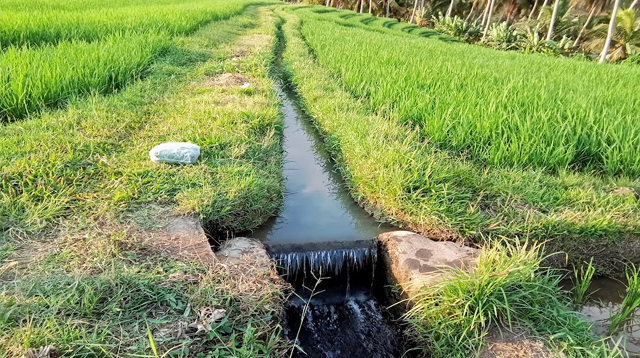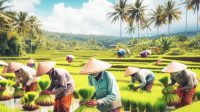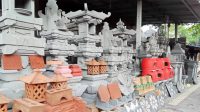SUBAK is rice field irrigation cooperative having been used by the Balinese people and established around for more than a thousand years ago. The uniqueness and sustainability of this system made it recognized as a World Cultural Heritage by UNESCO in 2012. The Subak tradition is not only about agriculture, but also reflects the Balinese people’s philosophy of life that is harmonious with nature and spirituality.
The Philosophy Behind Subak
The Subak system is based on the Balinese Hindu philosophy called Tri Hita Karana, which means balance between humans, nature, and God. In its application, this system not only aims to meet the needs of agricultural irrigation, but also pays attention to environmental sustainability and the social welfare of the community.
Subak is managed by a farmer community organization called krama subak, which is tasked with regulating water distribution and maintaining the irrigation system so that it continues to function properly. Decisions on water management are usually taken through deliberations at the subak temple, which is also a place of worship for farmers before the planting season begins.
Unique and Fair Irrigation System
One of the advantages of Subak is its fair and sustainable water distribution system. Water is channeled from the main source, such as a lake or river, through irrigation channels. The water is distributed proportionally according to the area of rice fields owned by farmers with the entry point through a water divider called temuku. The larger the rice fields owned, the greater the volume of water allocated. This shows the existence of justice and balance in the management of water resources in Bali.
To obtain irrigation water, farmers also follow a water usage subscription system, where they must register their rice fields with the local Subak organization. In this way, water usage remains under control and no one takes more than they should.
Modernizing Subak with a Touch of Tradition
Although it is a traditional system, Subak continues to develop to remain relevant to the needs of the times. One of the innovations made is the modification of irrigation channels. If previously temuku were made of soil or stone and wood, now many use concrete materials to make them stronger, more durable, and not easily damaged by erosion.
In addition, the use of temuku made of concrete also helps overcome disturbances from freshwater crabs, which often make holes in the soil irrigation channels, thereby inhibiting the flow of water or leaking water downstream, causing the flow to the rice fields to be cut off. With this technology, the Subak system becomes more efficient and less disruptive, but still maintains its traditional values.
Subak Educational Tourism: Delving into Local Wisdom
The uniqueness of the Subak system is now an educational tourism attraction for domestic and foreign tourists. Several locations such as Jatiluwih in Tabanan and Sidemen in Karangasem offer a first-hand experience to see and learn about the traditional Balinese irrigation system. Tourists can walk among the green terraced rice fields, interact with farmers, and try planting rice in the traditional way.
In addition, several tourist villages also provide farming experience packages, where tourists can join in plowing the rice fields using buffalo, planting rice seeds, and even taking part in the ceremonial procession at the Subak temple. This is a very interesting experience, especially for those who want to understand more about Bali’s local wisdom.
Conclusion
Subak is not just an irrigation system, but also a reflection of the harmony between humans and nature that has been passed down from generation to generation. With the Tri Hita Karana philosophy, this system teaches balance in managing natural resources sustainably. Although now undergoing some modernization, the essence of tradition and togetherness in the Subak system is still maintained.
For tourists wishing to get a unique and valuable experience, exploring villages that implement the Subak system is the right choice. In addition to enjoying the stunning panorama of terraced rice fields, they can also learn about one of the best cultural heritages that Bali has. Thus, Subak is not only the pride of the Balinese people but also an inspiration for the world in managing natural resources wisely. (*)











